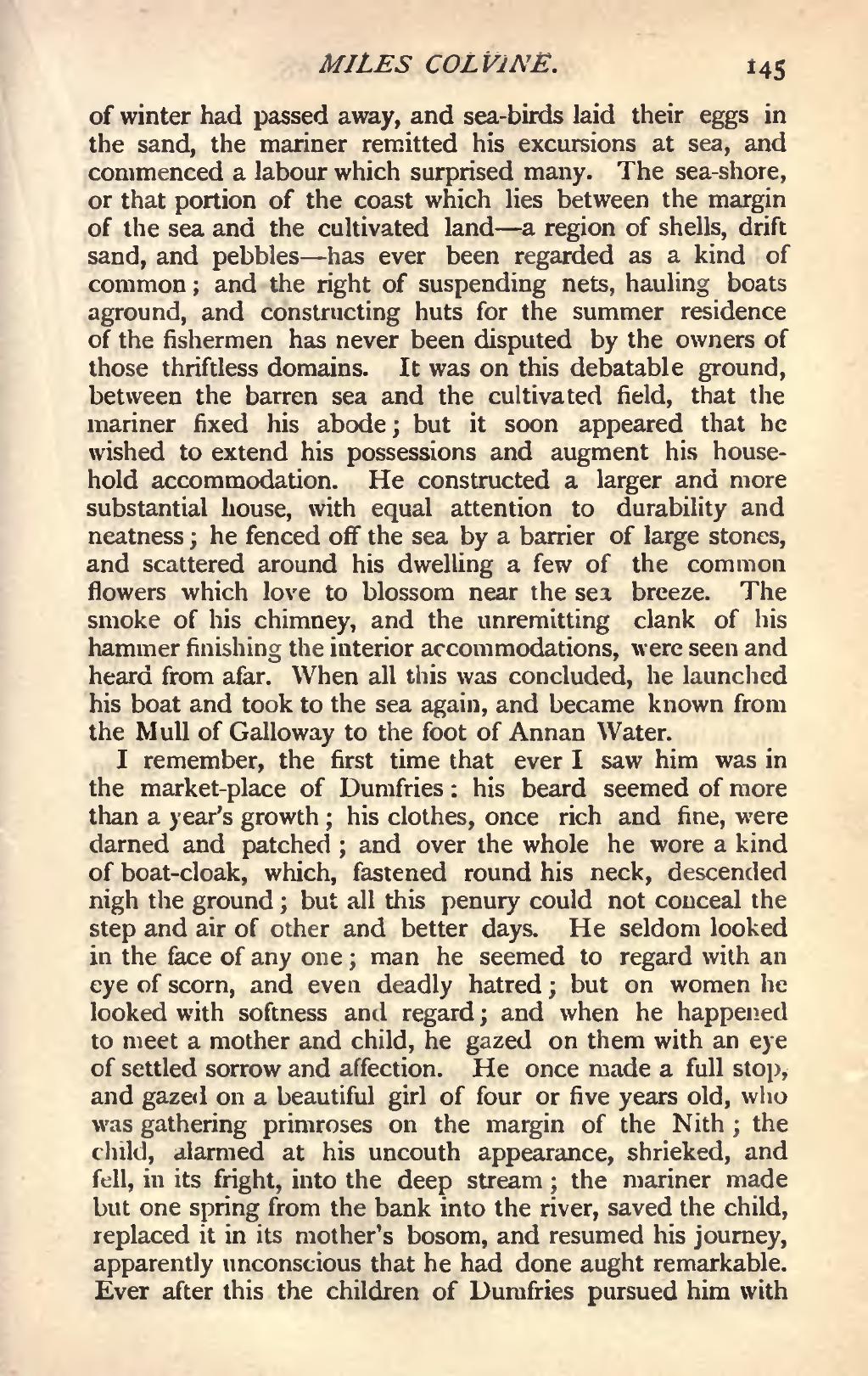of winter had passed away, and sea-birds laid their eggs in the sand, the mariner remitted his excursions at sea, and commenced a labour which surprised many. The sea-shore, or that portion of the coast which lies between the margin of the sea and the cultivated land—a region of shells, drift sand, and pebbles—has ever been regarded as a kind of common; and the right of suspending nets, hauling boats aground, and constructing huts for the summer residence of the fishermen has never been disputed by the owners of those thriftless domains. It was on this debatable ground, between the barren sea and the cultivated field, that the mariner fixed his abode; but it soon appeared that he wished to extend his possessions and augment his household accommodation. He constructed a larger and more substantial house, with equal attention to durability and neatness; he fenced off the sea by a barrier of large stones, and scattered around his dwelling a few of the common flowers which love to blossom near the sea breeze. The smoke of his chimney, and the unremitting clank of his hammer finishing the interior accommodations, were seen and heard from afar. When all this was concluded, he launched his boat and took to the sea again, and became known from the Mull of Galloway to the foot of Annan Water.
I remember, the first time that ever I saw him was in the market-place of Dumfries: his beard seemed of more than a year's growth; his clothes, once rich and fine, were darned and patched; and over the whole he wore a kind of boat-cloak, which, fastened round his neck, descended nigh the ground; but all this penury could not conceal the step and air of other and better days. He seldom looked in the face of any one; man he seemed to regard with an eye of scorn, and even deadly hatred; but on women he looked with softness and regard; and when he happened to meet a mother and child, he gazed on them with an eye of settled sorrow and affection. He once made a full stop, and gazed on a beautiful girl of four or five years old, who was gathering primroses on the margin of the Nith; the child, alarmed at his uncouth appearance, shrieked, and fell, in its fright, into the deep stream; the mariner made but one spring from the bank into the river, saved the child, replaced it in its mother's bosom, and resumed his journey, apparently unconscious that he had done aught remarkable. Ever after this the children of Dumfries pursued him with
